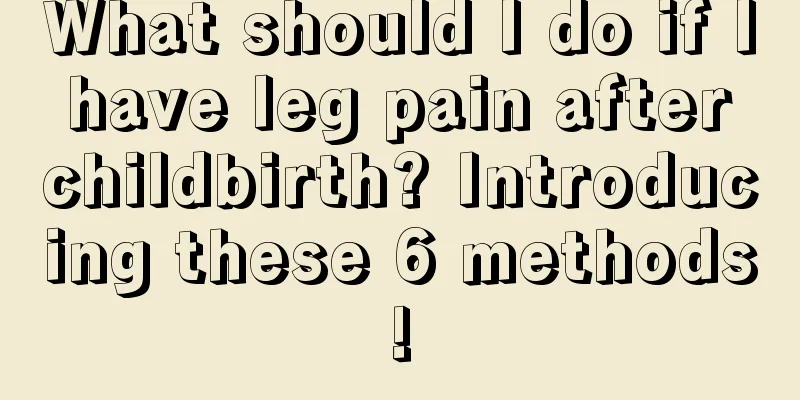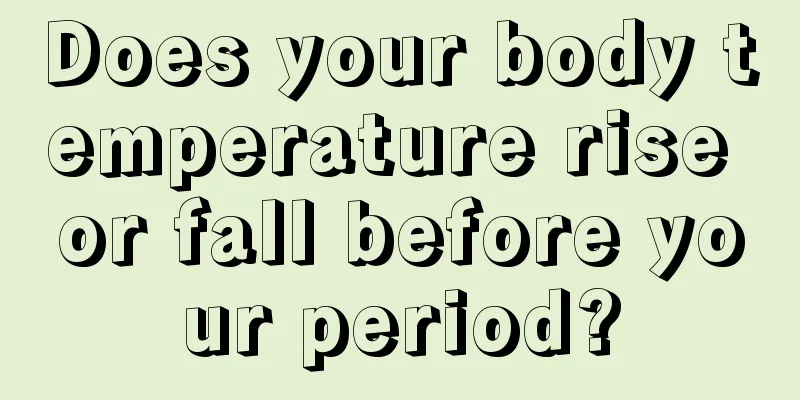Can mastitis be cured by weaning?

|
Most women develop mastitis during their breastfeeding period because mastitis is an inflammatory problem caused by a bacteria called Staphylococcus aureus. Excessive milk secretion by women may lead to mastitis. The most common symptom after mastitis occurs is breast pain in women, but severe breast cancer requires surgical treatment. So when a woman has mastitis, can she recover by weaning? Can I wean my baby during mastitis? Mastitis is very likely to occur during lactation. Sometimes, excessive milk secretion and a small baby's appetite can easily lead to mastitis, especially when the baby is very young. Can I wean my baby when I have mastitis? 1. Under normal circumstances, there is no need to stop breastfeeding. If mastitis is particularly severe and antibiotics are needed, breastfeeding should be stopped because antibiotics can affect the baby's bone development. 2. In the event of acute mastitis, there is no need to stop breastfeeding, because if the mastitis is not serious, it can disappear on its own, and breastfeeding can also relieve inflammation when mastitis occurs. 3. When weaning is needed, it is usually because the patient herself needs to do so. She believes that the condition of mastitis will be better after weaning. This is a psychological aspect. Weaning at this time has little to do with mastitis. 4. If mastitis is severe and the milk turns yellow, weaning is necessary. Because the milk at this time is infected with bacteria, and this severe mastitis needs to be treated with antibiotics. What is mastitis Mastitis is very harmful to women, and when mastitis occurs, other breast diseases may also occur. If not treated in time, suppurative mastitis is likely to occur. What is mastitis? 1. Mastitis is a common disease among women. Depending on the cause, it can be divided into plasma cell mastitis, paraareolar fistula, acute suppurative mastitis, etc., and the most common one is acute suppurative mastitis. 2. Acute suppurative mastitis often occurs during lactation. Especially within one to two months after giving birth to a primipara, it is called acute lactation or lactation suppurative mastitis. 3. Milk congestion will lead to bacterial infection, which will cause the disease, presenting as acute inflammation, usually with chills, high fever, redness, swelling, heat and pain. In the early stages, you can use manual methods to drain milk and Chinese medicine to treat the condition. If suppuration occurs, incision and drainage are required. 4. When this disease occurs, it will not only cause pain to the mother herself, but she will also be unable to continue breastfeeding, which will affect the health of the baby. Therefore, if you want to prevent it, you need to start from the late pregnancy and also do a good job of postpartum care. |
<<: Is HPV positive a high risk test?
>>: What should I give for mastitis infusion?
Recommend
Is it normal to lose 10 pounds during confinement?
During pregnancy, most pregnant women tend to con...
Japanese WeChat Line user growth stagnated, stopped at 200 million
According to Line's latest financial report, ...
What is the cause of blood streaks in pregnant women's vaginal discharge?
The production of leucorrhea is a normal physiolo...
The difference between hysteroscopic curettage and conventional curettage
Hysteroscopy is a relatively common surgical meth...
Where does the toe pain occur during pregnancy
In the very early stages of pregnancy, pregnant w...
How to remove ticks from dogs? Can ticks on dogs be removed directly?
Ticks, fleas, mites, lice, etc. love to parasitiz...
A woman with a mole on her forehead
Each of us has moles on our body, but some people...
What are some tips for girls to enlarge their breasts?
Maybe many of my female friends are prone to cong...
Slightly yellow leucorrhea without odor
The discharge is light yellow and has no odor. Th...
What are the reasons for not having menstruation for two months?
During puberty, girls always have irregular menst...
Can I take Fenbid while breastfeeding?
Almost all drugs can be transported into breast m...
Women's Health Weight Loss
Now is the vibrant summer again, which is the fav...
What to do if you have bleeding during intercourse after wearing an IUD
Inserting an IUD is a method chosen by many women...
Do the shoes you bought really fit?
I want to ask: Do the shoes you bought really fit...
What should I do if I have amenorrhea at the age of 37?
Amenorrhea is a physiological phenomenon that eve...









